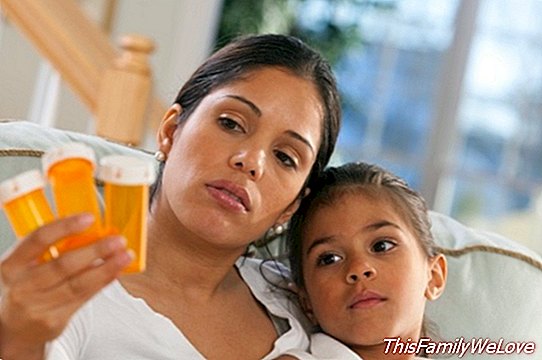4 ways to avoid antibiotic resistance

Antibiotics are a fabulous breakthrough in medicine and serve to treat diseases caused by bacteria. Thanks to its discovery, more than 70 years ago, humanity has been able to overcome many deadly diseases, but now its indiscriminate use and without medical guidance is jeopardizing its effectiveness, since many bacteria are creating resistance to antibiotics.
The World Health Organization (WHO) is calling on governments to take measures against self-medication with antibiotics, since, as they have confirmed, it may end up causing a epidemic of multiresistant bacteria to these antibiotics.
At present, Spain is the second country of the European Union in consumption of antibiotics Behind France and according to data from the Ministry of Health, about 30 percent of these antibiotics are obtained in Spain without a prescription, which means that the rate of self-medication with these drugs in our country is one of the highest.
Antibiotics: effective against bacteria, but not against viruses
Specifically, from November to February, Spaniards consume more antibiotics than the rest of the year coinciding with the appearance of common respiratory diseases typical of autumn and winter such as influenza, colds, colds, respiratory infections in general, or even cases of otitis or pharyngitis. However, all of them are caused by viruses and treatment with antibiotics is totally ineffective.
The effectiveness of penicillin, discovered by Alexander Fleming in 1928, which drastically reduced the mortality caused by infectious diseases caused by bacteria, is a danger due to improper use. The indiscriminate taking of antibiotics for viral diseases carries health risks. Currently, these medications are losing efficiency because the bacteria are becoming resistant to its action, becoming insensitive to its effect. This process can occur naturally, but the excessive and inadequate consumption of antibiotics accelerates the appearance of strains of resistant bacteria.
In relation to respiratory diseases, the antibiotic does not reduce fever, does not reduce coughs, mucus or sneezing, and does not help to recover from an infection caused by viruses, nor does it prevent viruses from spreading to other people .
4 safe ways to use antibiotics
1. Follow the doctor's instructions. Resistance of bacteria to antibiotics is favored when antibiotics are taken in incorrect doses or irregularly.
2. Comply with the guidelines regarding the dose. No more or less than recommended by the doctor.
3. Respect the schedule to the letter. Avoid skipping any shot and try to respect the schedule, making the shots at the same time.
4. Complete the treatment until the end. Do not stop taking the antibiotic ahead of time because you feel better, so you will contribute to create resistances. Do not interrupt it even if the symptoms have disappeared or are disappearing, since that does not mean that the infection is resolved. The infection may reappear and the antibiotic ceases to be effective.
Tips to be responsible with antibiotics
1. Do not self-medicate with antibiotics. If you have a viral infection, the antibiotics will be ineffective, they will damage your intestinal flora and can cause you allergic reactions or adverse side effects without necessity.
2. Do not apply antibiotics to the pharmacist without a prescription. It is prohibited by law.
3. Respect the deadlines set by the doctor. It is possible for a cold or flu to get complicated and after a few days, you need antibiotics. Wait for the necessary time and go back to the doctor to have it examined again.
4. Get vaccinated Many viral diseases, such as the flu, can be prevented with the corresponding vaccine. Get vaccinated, especially if you belong to a risk group.
5. Do not keep your antibiotics. Instead, ask your pharmacist how to get rid of them properly.
Marisol Nuevo Espín




